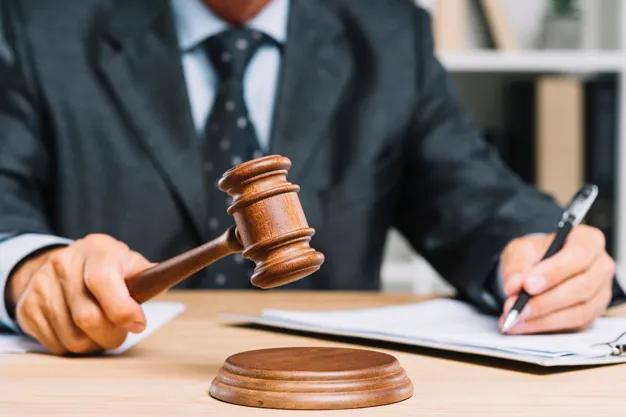The Supreme Court raised serious doubts regarding a conviction based on a guilty plea in a case involving allegations against a Border Security Force (BSF) constable(respondent) of clicking photographs of a lady doctor while she was bathing. The Court highlighted several critical factors that raised concerns about the credibility of the confession, including the absence of an eye-witness, the recovery of the camera from another person’s house, and inconsistencies in witness statements. The Court questioned why would the respondent confess when there was minimal evidence against him.
The court observed “In these circumstances, when the original petitioner(respondent herein) had raised a plea before the High Court that his confession was involuntary and that in fact no confession was made by him, there was a serious burden on the non-petitioners (i.e., the appellants herein), to satisfy the conscience of the High Court that there had been due compliance of the procedure and that the confession was made voluntarily. More so, when the record of evidence contained no worthwhile evidence regarding the guilt of the original petitioner.”
The Court held that before a finding of “Guilty” is recorded, the court(Summary Security Force Court in this case) must ensure that accused individuals not only understands the nature and meaning of the charges but also the broad consequences of pleading guilty.It also emphasized the importance of strict adherence to procedural safeguards when accepting guilty pleas.
It opined “It ensures that before pleading guilty the accused is aware of not only the nature and meaning of the charge which he has to face but also the broad consequences that he may have to suffer once he pleads guilty. This not only obviates the possibility of an uninformed confession but also such confessions that are made under a false hope that one could escape punishment by pleading guilty. It ensures that confessions do not become an easy way out for deciding cases where marshalling of evidence to prove the charge becomes difficult.”
Even if the accused pleads guilty, if it appears from the record or abstract of evidence or otherwise that the accused ought to plead not guilty, the SSFC is required to advise him to withdraw that plea, the Court said.
The bench comprising Justices J.B.Pardiwala and Justice Manoj Mishra was hearing an appeal filed by the Union of India and BSF(Border Security Force) against a Delhi High Court judgment which held that there was no worthwhile evidence against the former Constable(respondent) in the BSF and his punishment was set aside and was granted full consequential benefits except salary to the extent of 50%.
The incident in question dated back to June 17, 2005, when the lady doctor, while taking a bath, reported seeing camera flashes from her bathroom window. The matter was reported to the Chief Medical Officer, leading to an investigation by BSF authorities. Then proceedings were initiated against the respondent who faced a Summary Security Force Court (SSFC), where he reportedly pleaded guilty, resulting in his dismissal from service. Subsequently, the Director General of BSF dismissed the appeal, citing the petitioner’s guilty plea before the SSFC.
Things turned around in the High Court which allowed the appeal and held that there was no worthwhile evidence against the respondent as to weigh on him to admit his guilt. Aggrieved by the orders of the High Court, the Union of India, and BSF approached the Supreme Court.
The Court began by referring to the BSF Act, 1968, and the BSF Rules, 1969 concerning a “Security Force Court” and proceedings before it.
The court noted that rule 49 of the BSF Rules, 1969 provides for the preparation of an abstract of evidence. It states-
“49 (3). A copy of the abstract of evidence shall be given by the officer making the same to the accused……Provided that the accused shall be given such time as may be reasonable in the circumstances but in no case less than twenty-four hours after receiving the abstract of evidence to make his statement.”
The Court briefly referred to the timeline- noting that the last witness statement was recorded on 29th June and on the very same day, the respondent was asked to give his statement. The Court found merit in the respondent’s plea that this was a clear violation of Rule 49 which grants 24 hours time for reflection and therefore, any confession so made during the recording of evidence can be set aside.
The Court further opined that the respondent’s statements could have been used as a previous statement for cross-examination before the Security Force Court since section 87 of the BSF Act, 1968 allows the application of the Indian Evidence Act,1872.
The Court then referred to Rule 142 which deals with the manner in which an SSFC is required to record the plea of guilty.
“142. General plea of “Guilty” or “Not Guilty”- If an accused person pleads “Guilty”, the court shall advise him to withdraw that plea if it appears from the record or abstract of evidence (if any) or otherwise that the accused ought to plead not guilty.”
In the present case, the court noted that the SSFC did not indicate what advice they gave to the respondent. The minutes were nothing but merely a verbatim reproduction of the rule.
Given these circumstances, the Supreme Court noted that the burden rested heavily on the prosecution to demonstrate that the guilty plea had been recorded in accordance with the procedures prescribed by the BSF Rules, 1969. It held that the High Court was justified in scrutinizing the evidence to determine whether punishment based solely on the confession was warranted. The court dismissed the appeal accordingly.
Case title: Union of India v. Jogeshwar Swain



